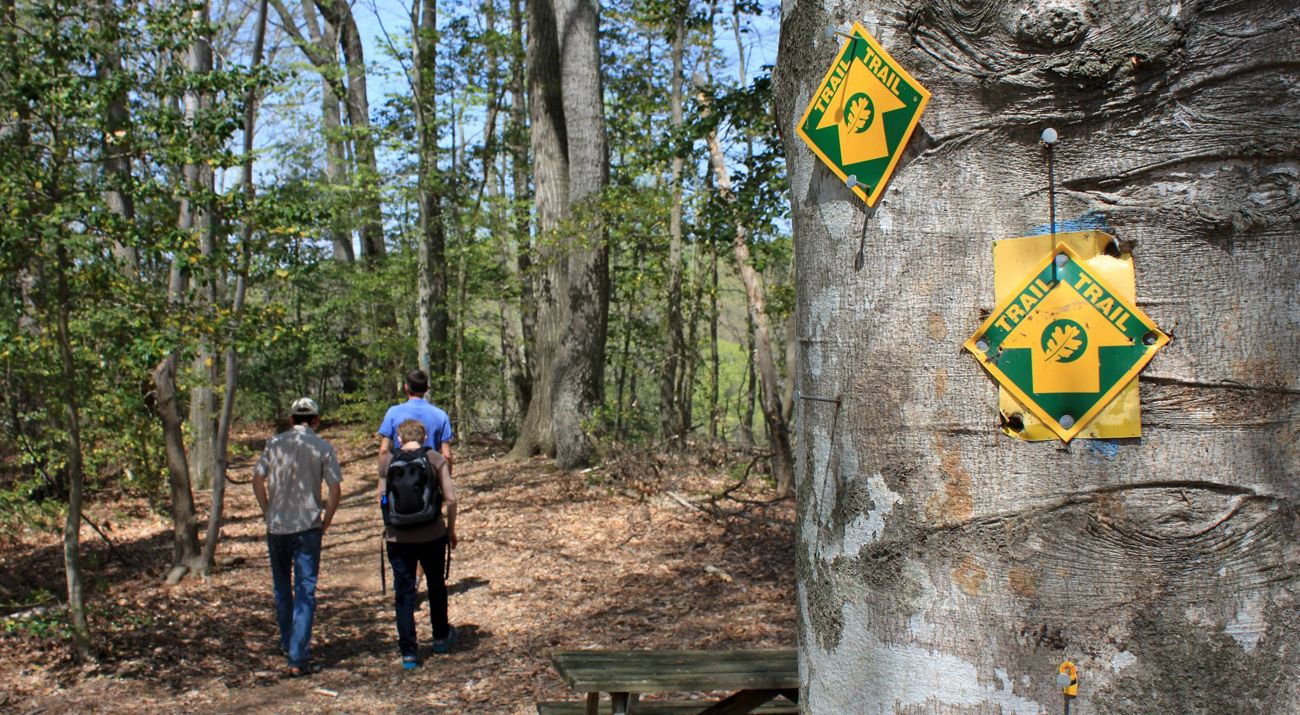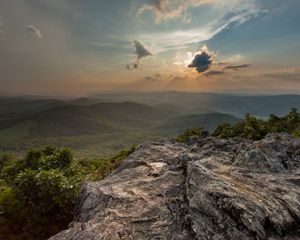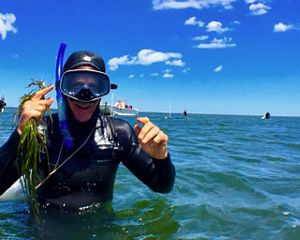
Virginia Preserve Guidelines
Experience and enjoy our public access preserves, but remember that every visitor has an impact. Please follow our visitor guidelines to protect yourself and nature.
The Nature Conservancy’s preserves are set aside to protect natural plant and animal communities. We invite you to experience and enjoy preserves where we provide public access, but remember that every visitor has an impact. Please follow our visitation guidelines to protect yourself and nature.
- Preserves are open to the public during daylight hours.
- Passive recreation such as walking, bird watching, and photography is welcomed.
The following activities are not allowed:
- Bringing dogs onto the preserve unless otherwise noted. Please visit Places We Protect to confirm the policy at each preserve.
- Dogs are not allowed on any of the Virginia Coast Reserve islands
- Picking flowers, mushrooms, etc.
- Removing rocks or other parts of the landscape
- Smoking
- Camping
- Fires or cookouts
- Driving motorized vehicles, including ATV’s, except on designated access roads
- Biking, except at Brownsville Preserve
- Fishing, trapping or hunting, except as otherwise posted
- Horseback riding
- Feeding wildlife
- Releasing animals or introducing plants
- Disposing of trash or other waste, including biodegradable materials
To minimize your impact, we ask that you please also observe the following:
- Stay on trails
- Avoid walking in wet, boggy areas
- Inspect pant legs and shoes to remove seeds before entering and when leaving the preserve. Failure to do so could introduce invasive weeds to new locations.
- If you flush a ground nesting bird, stop and avoid walking near the nest area
- Observe all posted signs
- Please do not remove stakes, signs, flagging, tape or similar objects. These may be markers for a research project.
- Please do not trespass on private property adjacent to preserves
For your own comfort and enjoyment, come prepared. Wear comfortable shoes for hiking, pack rain gear, and wear long pants with socks over them to protect yourself from ticks and poison ivy. Always remember to bring water, as dehydration is a serious year-round threat.
If you observe any illegal activity on a preserve such as ATV use, do not confront the offenders yourself. However, do feel free to call local law enforcement.
Be bear aware: a note about wildlife
While black bear populations are healthy in the western part of the state, you are unlikely to encounter a bear while visiting one of our preserves. More often than not, a wild bear will detect you first and flee from the area. However, black bears that have become accustomed to humans and their foods may not run away. In these cases, certain precautions are offered for consideration (source: USFWS):
- Do not run. Remain calm, continue facing the bear and slowly back away.
- Keep children and pets close at hand.
- Make lots of noise. Yell, rattle pots and pans, whistle and break sticks.
- Travel in groups.
- Stand upright. Do not kneel or bend over. Wave arms, jackets or other materials.
- Never approach or corner a bear.
- Never offer food to a bear.
- Be aware of the presence of cubs and never come between a bear and its cubs.
- Fight back aggressively if a bear attacks you.
Enjoy your visit and please report any problems you encounter at a preserve to the Virginia Chapter at 434-295-6106.


